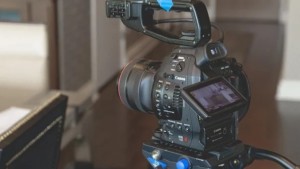Over the past 5 years, the focus of the multiple listing service companies across America has been on the proper licensing of photography. If you have not dug into photo licensing, WAV Group has plenty of articles about the issues and best practices; but suffice it to say that the person taking the media – either photo or video – owns it unless you have an agreement otherwise. They license the media for a specific use. When it is contributed to the MLS compilation, the MLS requires a limited, perpetual license for MLS purposes.
Data collection for the MLS has long been the role of the agent. They walk through the house while taking notes (which either them or an admin working for the broker) and put it all into the MLS. Media is either captured by the agent (generally the case for lower priced homes) or by a professional photographer (generally the case for higher priced homes). The decision is typically made by the agent who is paying for the photography.
The Future Role of the Photographer
 Photography is different today now that data systems can easily handle larger files sizes. Photographs are essentially capturing virtual reality. What the camera captures is creating a digital twin of the rooms. Not only are the room measurements precise, but they are fully editable; this is called digital staging. You can easily remove people who may have been accidentally captured, pick up clutter, remove old furniture and replace with a style of your choice, change curtains, modify wall color, use artificial intelligence to capture brands and models of appliances, and so much more.
Photography is different today now that data systems can easily handle larger files sizes. Photographs are essentially capturing virtual reality. What the camera captures is creating a digital twin of the rooms. Not only are the room measurements precise, but they are fully editable; this is called digital staging. You can easily remove people who may have been accidentally captured, pick up clutter, remove old furniture and replace with a style of your choice, change curtains, modify wall color, use artificial intelligence to capture brands and models of appliances, and so much more.
Check out Urbanimmersive for some pretty cool property scans that enable virtual showings.
This begs the question: Should MLSs return to the practice of hiring photographers to capture this data?
Data As an Asset
We talk about data as an asset to brokers all of the time. Very few understand the importance of developing their data asset. It has a lot of value in the context of the customer relationship. When consumers trade properties, they are looking for many services. Companies like Milestones and MooveGuru are leading the charge to help brokers deliver these services to add convenience to relocation. The provisioning of services to the customer-for-life of homeownership is the specialty of the brokerage.
What makes the MLS so valuable is that it is the most comprehensive database of property information. The MLS plays the invaluable role of collecting and organizing the compilation and protecting it though its copyrighting practices.
MLS Strategy for Data Collection
With the role of media capture becoming the key element of property data, it seems like the MLS needs to focus on leading that effort. If the MLS hires the photographer and offers that as a service to the brokers and agents, then the MLS will develop a much more valuable asset for its participants and subscribers. This cements the value of the MLS for decades into the future. Most of all, the ability to order photography from the MLS would make life much better for the listing agent. It’s like a concierge service. Given the scale of the MLS, I would also expect that they would be able to negotiate great prices and improve work product. Agents would get more quality, better service, and pay less.
Best of all, MLSs would be capturing the data that can lead to virtual cities that are digital twins of existing buildings. Over time, nearly every building in a community would be digitally scanned. The usefulness of this information is infinite with its value assured.
How to get started
This strategy begins with a conversation at the board of director’s level. Not all MLSs have the capabilities to execute this type of vision. For us, this strategy is informed by our analysis of the deployment of web3 – the immersive virtual experience of real life, delivered through the internet. We are in the early days of this massive restructuring of the internet and data. For the MLS to remain relevant in the future, action needs to be taken now.





I see no value to agent or consumer here, Despite any aspirations for MLSs (or their advisers) to curate and offer new products/seervices, the libertarian slice of my mind sees the ultimate emergence of a new service, with parallels to the Zillow journey, hiving off another piece of the commission unintended. I think we need to re-learn the lesson of the British railways, Don’t inadvertently create a path to allow the snake to eat its own tail. But then, it is probably already too late. If one wants to do anything, they ought not to try to do everything. Now if I’m not thinking of some angle here that might really benefit the consumer or the agent, I’ll be the first to re-consider should that be made clear to me. All I see at the moment is something like a moving of the 90-10 ratio to 95-5. Maybe its time for a focus group to give feedback on immersive, digital imaging vs. good old professional photography. Maybe build case studies. Compare properties — a seasoned professional still photographer’s output with images sized to the golden ratio (the way we humans see) vs, the disillusioned immersive techno-creation such as Matterport or whatever else may be offered. Photography is an art. Maybe the better use of resources is a licensing requirement on the conditions necessary that teach principles of photography. Start with teaching about human field of vision, etc. (Did I just date myself — perhaps).
fantastic perspective